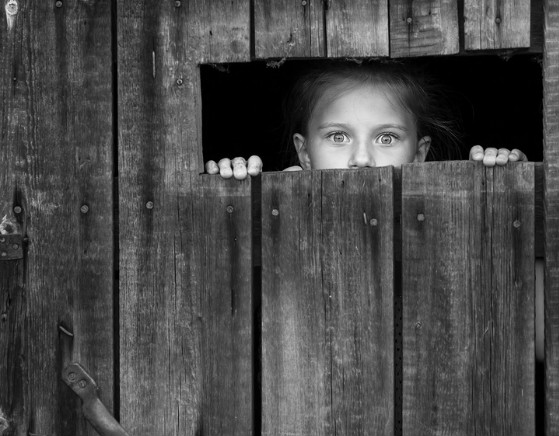Unburden Yourself from the Root of Your Anxiety.

Some of us only know ourselves to be highly anxious, perfectionistic adults.
When something goes wrong, we immediately assume it is our fault.
When mistakes happen, we are unable to forgive ourselves.
We feel guilty and ashamed for even the smallest error.
We jump to the worst possible outcome so we could prepare for it.
We become socially anxious because we do not believe our real self would be accepted.
When our partners distance themselves, we become frightened of abandonment.
When conflicts arise in relationships, we rush to rescue the situation, sometimes sacrificing our own dignity.
Even when we have done our best, we blame ourselves for not being perfect.
If we were to dissect our life history, we might realize our breathlessness stems from having to grow up too early, too soon as a sensitive and empathically gifted child.
Children naturally blame themselves for what happens to them.
If they are bullied, they believe it is because they are not beautiful or smart enough.
If they are neglected, they believe they are too needy to begin with.
If they are burdened with demands that they cannot fulfill, they believe it is their failure — failing to be a perfect child, failing to take good care of their siblings, failing to sooth their parents’ anger.
When parents blame a child, the child believes that they are in the wrong.
Many emotionally sensitive and naturally empathic individuals have automatically taken on the role of the little adult in their family — sometimes concretely and practically, but most of the time, covertly and on a psychological level. They are the old souls who are by nature more attuned and mature than their chronological ages.
Because of their extraordinary warmth, compassion and depth, their family members have come to — usually unintentionally — lean on them. They are used to being the ones who make sure that everything is in order, and to be responsible for meeting not just their own needs but also others’. They are programmed into feeling that if they let go of the control wheel for just a minute, things will go wrong.
On the surface, we might say we don’t believe we are responsible for our family’s dysfunction.
But deep down in there, we feel as though if we had been a different child, things would have been better.
Our childlike mind thought perhaps if we were less difficult, less sensitive, our parents would treat us differently.
We thought if we were somehow better — a less needy child, a more helpful child — bad things would not happen.
We thought if we silenced our needs and desire, if we never expressed frustrations or sadness, they would be less angry.
We thought if we became hyper-vigilant and hyper-emphatic, picking up the earliest smallest clues of our parents’ outbursts, we could protect our siblings.
We thought if we were our parents’ confidants and counselors, we could take away their pain.
The deep-seated urge to fix things is the root of many of our sufferings. Albeit unconsciously, we have bought into an insufferable myth — the myth that says somehow we could and should control whatever happens. This belief may not be conscious, but seeps into our lives in the form of chronic anxiety, nameless guilt, and the inability to feel safe.
One reason we are unable to let go of the past is the deep down longing that we will be able to make things right.
Yet no matter how hard we try, reality is not perfect, and our family may remain in denial of their wrongdoings.
Even in our own lives, we cannot control the many uncertainties.
When bad things happen, we get into the habit of driving all blame to ourselves, drowning in cycles of guilt and shame.
But you are reading this because your soul has had enough.
The childlike part of you is still terrified of conflicts, fear, abandonment and rejection.
But the wise, healthy part of you wants to break free from the myth that had kept you stuck.
To reclaim the love for ourselves, we must undo the childhood conditioning that has trained us to always be on high alert to emotional signals, to put others’ needs before our own, and to hyper-empathize to the point where we lose ourselves. Relieving ourselves of the impossible duty to rescue, help or emotionally caretake anyone is the biggest gift to our souls.
It is not your fault that you could not cure your parents of their depression, alcoholism, workaholism, addictions, or trauma.
You do not need to punish yourself for not living up to an impossible standard.
It was never your task to live your parents’ unlived lives.
You could not have protected your siblings from your parents’ dysfunctions.
It should never have been on you to calm or comfort anyone. You were only a child.
You are allowed to be imperfect, to make mistakes, to make a mess.
You do not have to do anything to be worthy of existence.
You are not here to help others, achieve things, or be productive. You deserve to exist just as you are.
You do not have to sacrifice your needs to accommodate others’. People can take care of themselves.
You could not change who your parents are, how they behave, or what they believe.
There might never be justice, but your happiness is not contingent on what they say or think.
The first step to releasing past hurt is forgiving yourself, even if there was nothing to forgive in the first place.
Let it go. You have done more than enough.
Unburden yourself, and live your own life, not according to anyone’s scripts.
***
Imi Lo is a consultant for emotionally intense and highly sensitive people. She is the author of Emotional Sensitivity and Intensity, available in multiple languages, and The Gift of Intensity (2021). Imi focuses on working with emotional intensity, high sensitivity, and giftedness. She has trained in mental health, psychotherapy, art therapy, philosophical counselling, and mindfulness-based modalities. As a coach, she works holistically, combining Eastern and Western philosophies with psychological and spiritual healing modalities such as Buddhism. Imi’s credentials include a Master in Mental Health, Graduate Diploma in Psychology, Bachelor of Social Science in Social Work, Certificate in Logic-based Therapy, and an Advanced Diploma in Contemporary Psychotherapy. She has been consulted by and appeared in publications such as The Psychologies Magazine, The Telegraph, Marie Claire, and The Daily Mail. Imi is the founder of Eggshell Therapy and Coaching, working with intense people from around the world.
***
{Join us on Facebook, Twitter, Instagram & Pinterest}
Comments
Comments are closed.



Thoughts on being hospitalized for almost 5 straight months – Musings of an Anxious Mind
March 7, 2019 at 1:45 am[…] This goes out to anyone who deals with anxiety. In short, it is ok to be imperfect. We all are. We aren’t necessarily here to achieve things, help others, or be productive (although those ar… We deserve to exist just as we […]